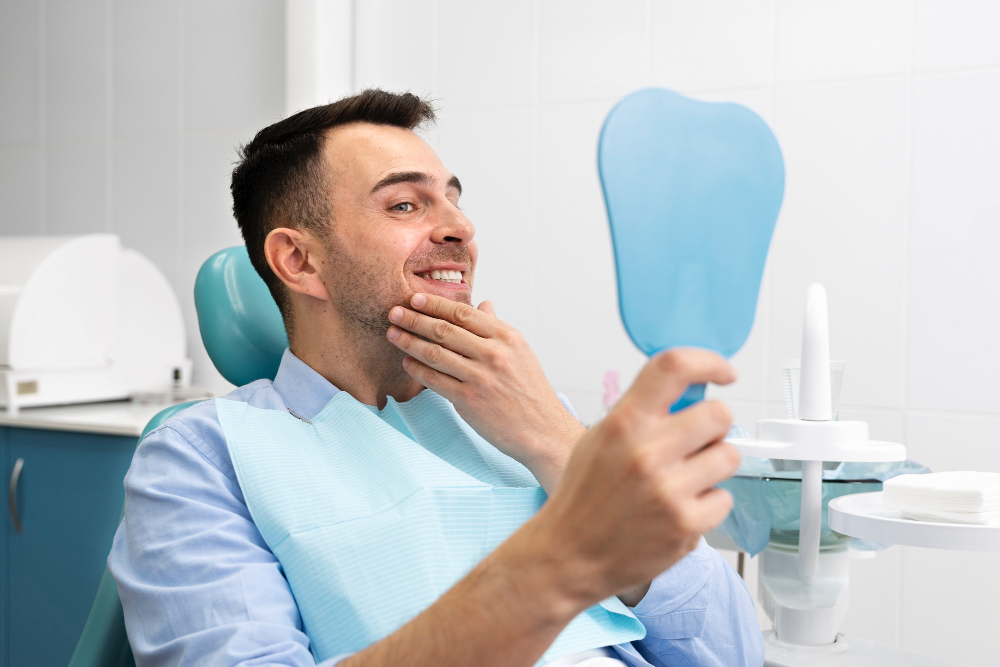Although orthodontic treatments are much less demanding nowadays than they used to be, you’ll certainly need to make a few changes to your daily nutritional routine. You’ll still be able to eat most of your favorite foods, but some exclusions and precautions apply. What should I eat during an orthodontic treatment?
The Clinique Dr Normand Bach Orthodontist in Montreal hands out the rules to follow and a few tips to make this period easier.
Products to Avoid: Sticky Food
Yes, you’ll have to forget about jujubes, caramel and gum during your orthodontic treatment. Unfortunately, these foods require a lot of chewing and, above all, they stick to your braces.
When they stick to your braces, there’s a significant risk: breakage. Your braces could come off, or your wires could break, while you’re chewing these foods. This means you’ll have to make an appointment with your orthodontist for repairs, which will extend the duration and effectiveness of your treatment.
Want to freshen up your breath? A little toothbrushing or mouthwash can easily replace chewing gum. Chewing gum bends and unfolds the wires, making them more fragile and eventually breaking them.
Also, remember that you should brush your teeth after every meal while wearing braces. Maintaining impeccable oral hygiene, including flossing, will prevent food trapped in braces from causing cavities or gum problems.
Orthodontic Treatments: Pay Special Attention to Hard Foods
Not all hard foods are forbidden during treatment. However, you do need to be careful not to damage your braces.
For example, certain types of potato chips are thicker and harder than others, and should be avoided wherever possible. Crackers and pretzels are other salty snacks that can damage your braces.
Yet, you can eat classic potato chips! As for popcorn, it is also recommended to avoid: the flakes sometimes found in the center can damage your brackets.
Also, be careful with:
- Raw vegetables (carrots, celery, radishes, etc.)
- Firm fruit such as apples
- Whole nuts like almonds or hazelnuts
- Hard candies
- Certain types of cereal
If your favorite cereals are rather hard and crunchy, you can let them soften a little in milk before eating them. Be careful with soft bars too; they’re rarely that soft! Choose your types according to their texture, and avoid sticky ones at the same time.
Bread generally poses no problem, but sometimes the crust is tougher. In this case, take small bites or cut the piece off. Whatever the food, avoid biting with your front teeth.
Cut Certain Foods
A good tip for eating most hard foods without limitations is to cut them. While biting down on an apple is not recommended, there’s nothing to stop you from chunked it! Nuts such as almonds can also be cut and sliced.
The same applies to raw vegetables, which can be chiseled into smaller sticks, wedges or rounds. For example, sliced celery will be much easier to eat, and you won’t risk getting any threads stuck!
Corn can also be cut to avoid eating it directly off the cob. Although this isn’t very dangerous, it’s a food that’s notoriously unpleasant to eat with braces.
Finally, cooked foods don’t generally require any precautions, except sometimes for meat. Simply avoid taking too big bites of steak, as this can dislodge the threads; also avoid grating the bones.

Eat Soft Food After Appointments
Braces installation and adjustment appointments can be uncomfortable. For this reason, among others, we advise you to opt for a soft diet in the 2-3 days following your appointment. Here are a few ideas:
- Eggs in all their forms
- Pasta, rice, quinoa, etc.
- Mashed potatoes and well-cooked vegetables
- Soups and broths
- Pancakes, cake, ice cream, etc.
In short, there’s nothing tricky about eating during an orthodontic treatment, though you do need to be a little more careful than usual. Would you like to have a zero-restriction option? Find out if you qualify for Invisalign treatment!
Would you like more tips and advice on maintaining your braces? Contact our team at Clinique Dr Normand Bach, your orthodontist in Montréal.